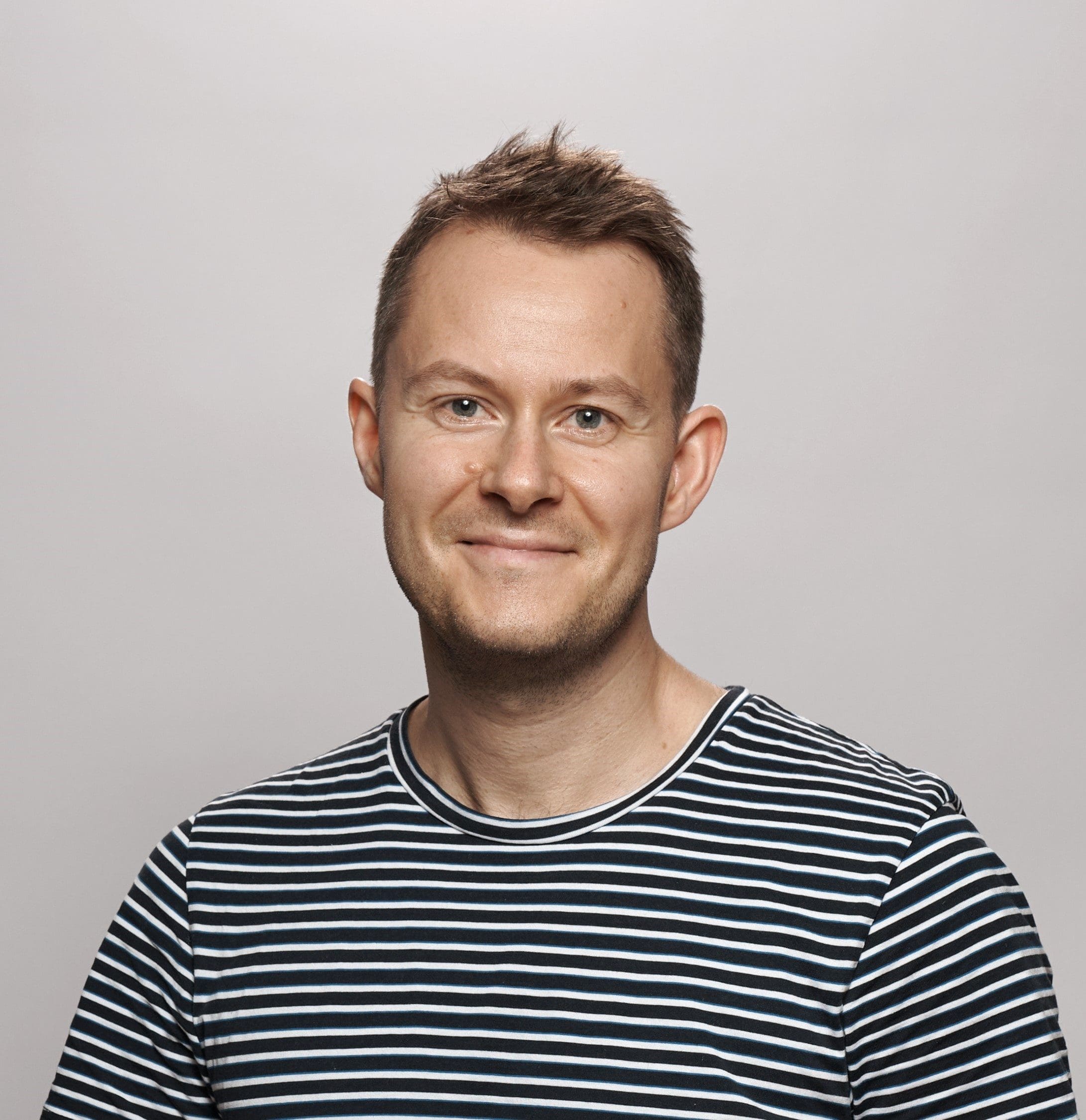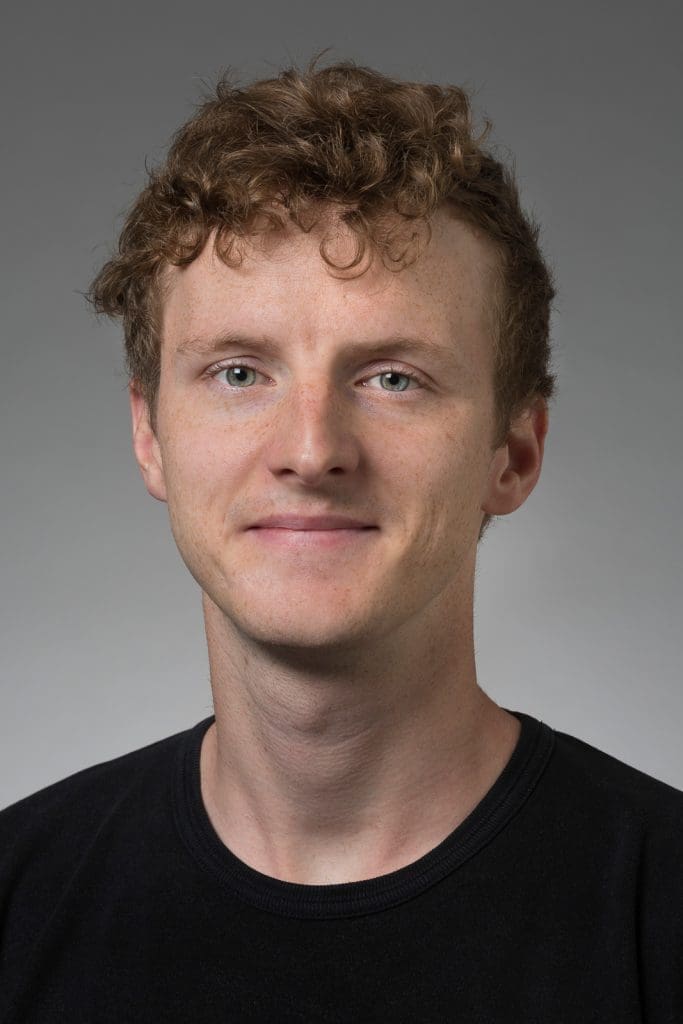
Andreas Ebbehøj Ladefoged is precise, curious – and deeply invested in asking: “Can we do better?” As the newest member of the DDEA Board of Directors, he brings a voice grounded in data-driven curiosity, endocrine nuance, and human-centred medicine.
Photo credit: Aarhus University

Trained as a medical doctor from Aarhus University, with a background steeped in adrenal research and an evolving fascination for secondary hypertension, Andreas Ladefoged Ebbehøj represents a generation of clinician-researchers who want to challenge “how it’s always been done”.
His journey into endocrinology was, by his own account, almost accidental.
“I was still a medical student when I got pulled into a project on rare adrenal tumours,” he says. “It sounded interesting – and before I knew it, one project led to another.”
A classic story of coincidence – but one underpinned by a genuine scientific hunger:
Why are we treating patients this way?
Is the data good enough?
Can we do it in a better way?
His MD research focused on adrenal incidentalomas – those shadowy, often benign adrenal tumours that show up uninvited on abdominal scans. Many of the existing guidelines were built on data from highly specialised centres.

“But that’s not how most patients present,” he explains. “We needed population-based data to understand the broader reality.”
So he went to Mayo Clinic in the US and helped lead one of the largest population studies on adrenal tumours to date – work later published in The Lancet Diabetes & Endocrinology.
The results?
Significant.
Previous specialized estimates suggested around 20% of incidentalomas were highly hormonally active or malignant. But real-world data told a different story: less than 5% fit those criteria. It accelerated a shift in international guidelines – a move toward fewer unnecessary follow-ups, and more measured clinical pathways.
“No one wants to tell a patient, ‘You probably don’t have cancer, but let’s scan you for two years just in case. Being told you might have a tumour – it shakes you. Even if it’s benign.”
His dual lens – as clinician and researcher – allows him to see the data and the distress. And in between, he builds solutions.
For Andreas, research is never just an academic pursuit. It is a tool for evaluating and improving clinical routines.
“I enjoy the clinical work. But research lets me pause and ask: ‘Is this still the right thing to do?’”
That same motivation has led him to focus on primary aldosteronism – a surprisingly common and underdiagnosed cause of hypertension. While still considered niche within endocrinology, the condition affects up to 1 in 20 patients with high blood pressure, yet barely 1% are ever tested for it.

“There’s a disconnect,” he says. “Between what guidelines recommend and what actually happens in practice – often because testing is so cumbersome, especially for non-specialists.”
His current DDEA-funded postdoc seeks to simplify this diagnostic pathway. Not with shortcuts, but with smart, pragmatic adjustments – making it feasible for GPs and clinicians without endocrine subspecialties to screen more efficiently.
“We’re aiming for methods that are both scientifically robust and practically feasible.”
Andreas is quick to highlight that his research success did not happen in isolation.
“I owe a lot to my mentors – and to environments like DDEA that foster both curiosity and collaboration.”
His engagement with DDEA began as a participant at niche endocrine symposia.
“Suddenly there were events focusing on my rare disorders – where I wasn’t just the only adrenal nerd in the room.”
Now, as a new member of the DDEA Board of Directors and representative of FYEN (Young Endocrinologists in Denmark), Andreas hopes to strengthen the bridge between early-career clinicians and strategic decision-making.
“We need postdoc-level opportunities, not just PhD ones. That’s where many talented clinician-researchers fall off the map.”
He believes DDEA has a continued role: “Specialist courses, interdisciplinary links, support for rare disease research – there’s a gap DDEA is uniquely suited to fill.”
If you ask Andreas what drives him, it’s impact – especially for those few patients whom not many sees.
“I heard someone once say: you can either do a little for many, or a lot for a few. And I realised – I want to do a lot for a few.”
That ethos runs through his work on Cushing’s syndrome, adrenal tumors, and other rare but life-altering diseases.
It is also why he advocates for broader Scandinavian collaboration in endocrine research, facilitated by DDEA in the future.
“Denmark, Norway, Sweden, Finland – we have aligned health systems, world-class registries. We could and should be globally leading in rare diseases. Great collaborative projects exist – but there is potential for so much more if we can facilitate collaborations and avoid national siloes.”
In the boardroom, Andreas brings the practical realities of clinical life as a young doctor into focus. Especially those that quietly exclude some from the research community.
“When activities run from nine to three, it’s just not feasible for many clinicians – especially if you also have a family. You’re left out by default.”
He believes it is time to ask honest questions about how calls and events are structured – and who might be missing as a result. Young doctors. Basic researchers. Working parents. Often, early-career women.
“No one’s doing this on purpose,” he says. “But if we don’t acknowledge the barriers, we can’t remove them.”

Whether it is streamlining governance requirements or rethinking event formats, Andreas sees value in small, thoughtful changes that widen the circle, without lowering the bar.
“It’s not about criticism,” he adds. “It’s about making room. So more people can contribute – and more voices are heard.”
From his seat on the Board, that is exactly what he hopes to help make happen.
DDEA is headed by a Board of Directors of seven members.
The principal tasks of the Board of Directors are to:
EAN: 5798 0022 30642
Reference: 1025 0006
CVR: 29 19 09 09